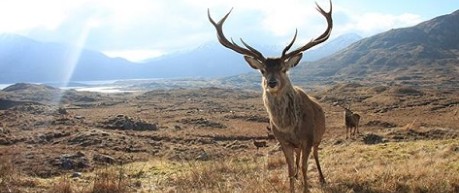Thursday 9th May 2019, 2:00pm
Genetic variation of Scottish red deer populations may indicate they are healthy but can be at risk of new diseases.

Environmental changes combined with translocations of animals increase the risk of spread of diseases. In particular, there are concerns that Chronic Wasting Disease, which has been killing deer in Northern Europe, could spread to the UK.
An international team of scientists led by Dr Sílvia Pérez-Espona of The Roslin Institute and Royal (Dick) School of Veterinary Studies have analysed the genetic make-up of Scottish highland red deer populations. They focused on a set of genes that play central roles in immune defence.
They found that the red deer populations analysed have high genetic variation at the Major Histocompatibility Complex -a family of genes with an important role in immune defence, which is generally associated with healthy and outbred populations.
This study opens the way to large-scale studies aiming to build an immunogenetic map of red deer populations across Scotland, with the view to inform future management strategies of this iconic and economically important species in Scotland.
"Analysing genetic diversity of this specific region of the genome provides useful estimates of genetic resilience of wild deer populations to withstand pathogens. We hope that our results can help devise effective management strategies to control and mitigate disease risk of deer populations."
Dr Silvia Perez-Espona, Conservation Science Programme Co-ordinator, The Roslin Institute and Royal (Dick) School of Veterinary StudiesThe study has been funded by the British Deer Society and is published in the European Journal of Wildlife Research.
The Roslin Institute receives strategic investment funding from the Biotechnology and Biological Sciences Research Council and it is part of the University of Edinburgh’s Royal (Dick) School of Veterinary Studies.
Source: The Roslin Institute